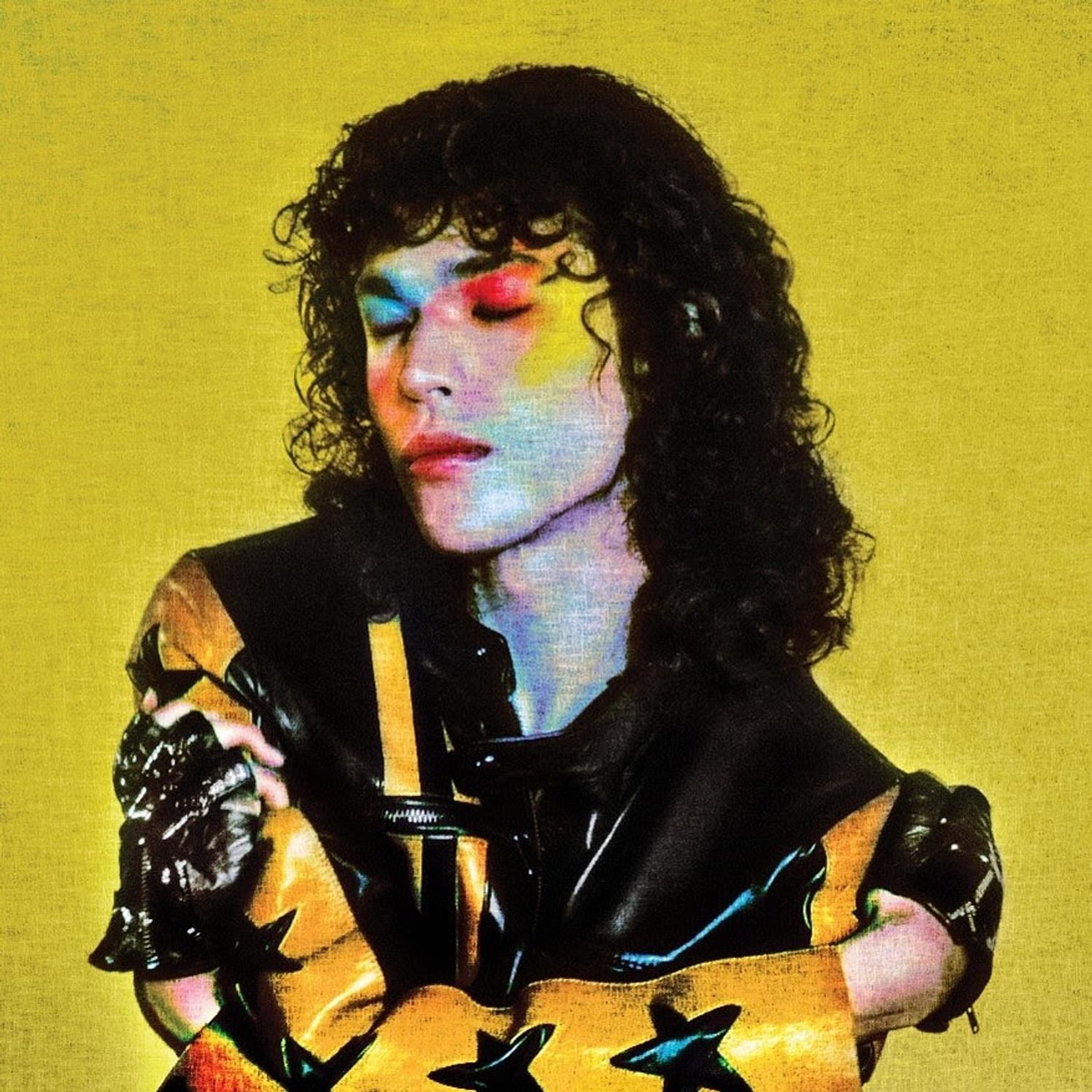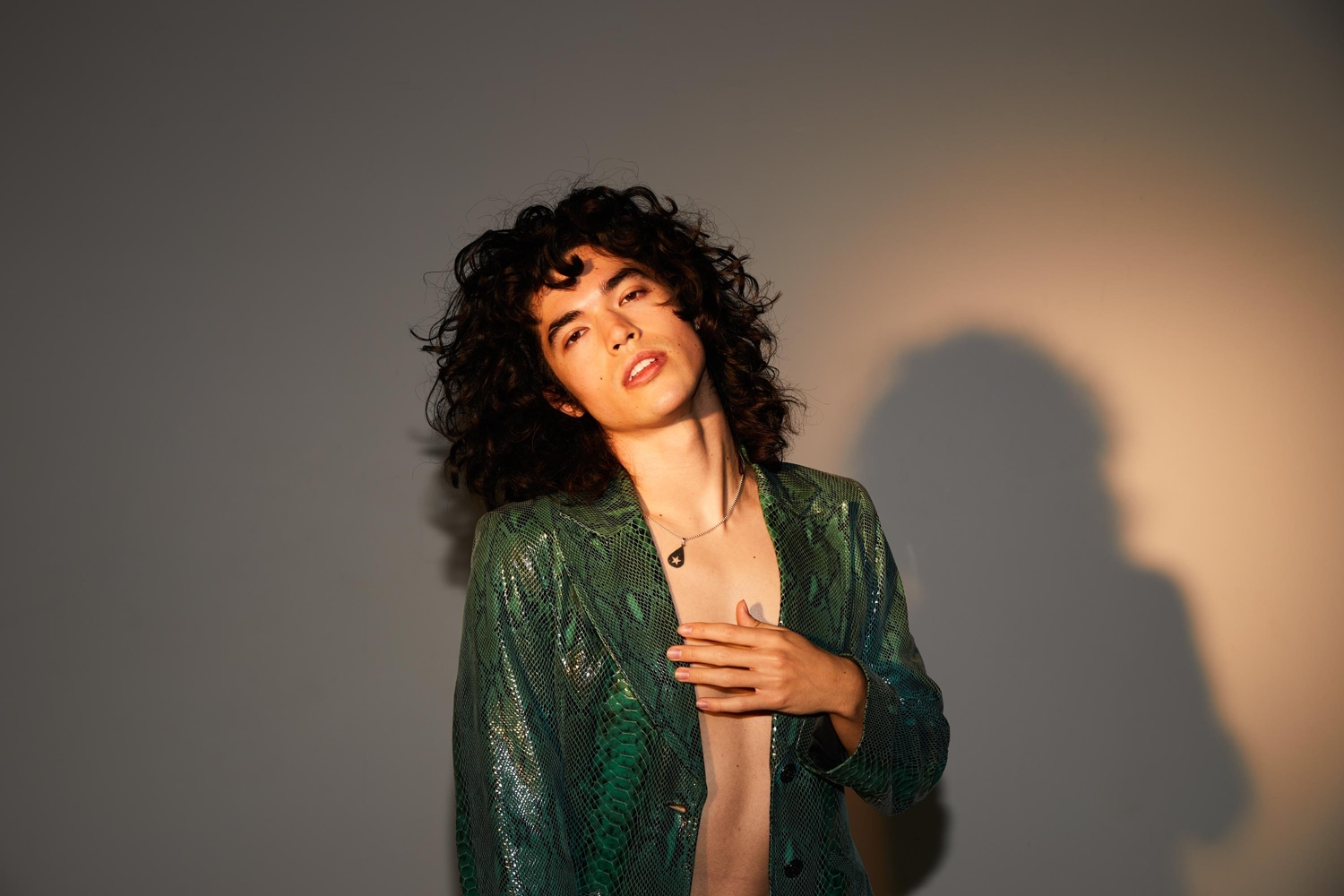
Conan Gray: Heaven Sent
Throwing it back to the sounds of the ‘80s, Conan Gray’s third album is a musically exuberant curveball for the Gen Z icon. Emotive yet excitable, it’s a huge stride into a new lane all of his own.
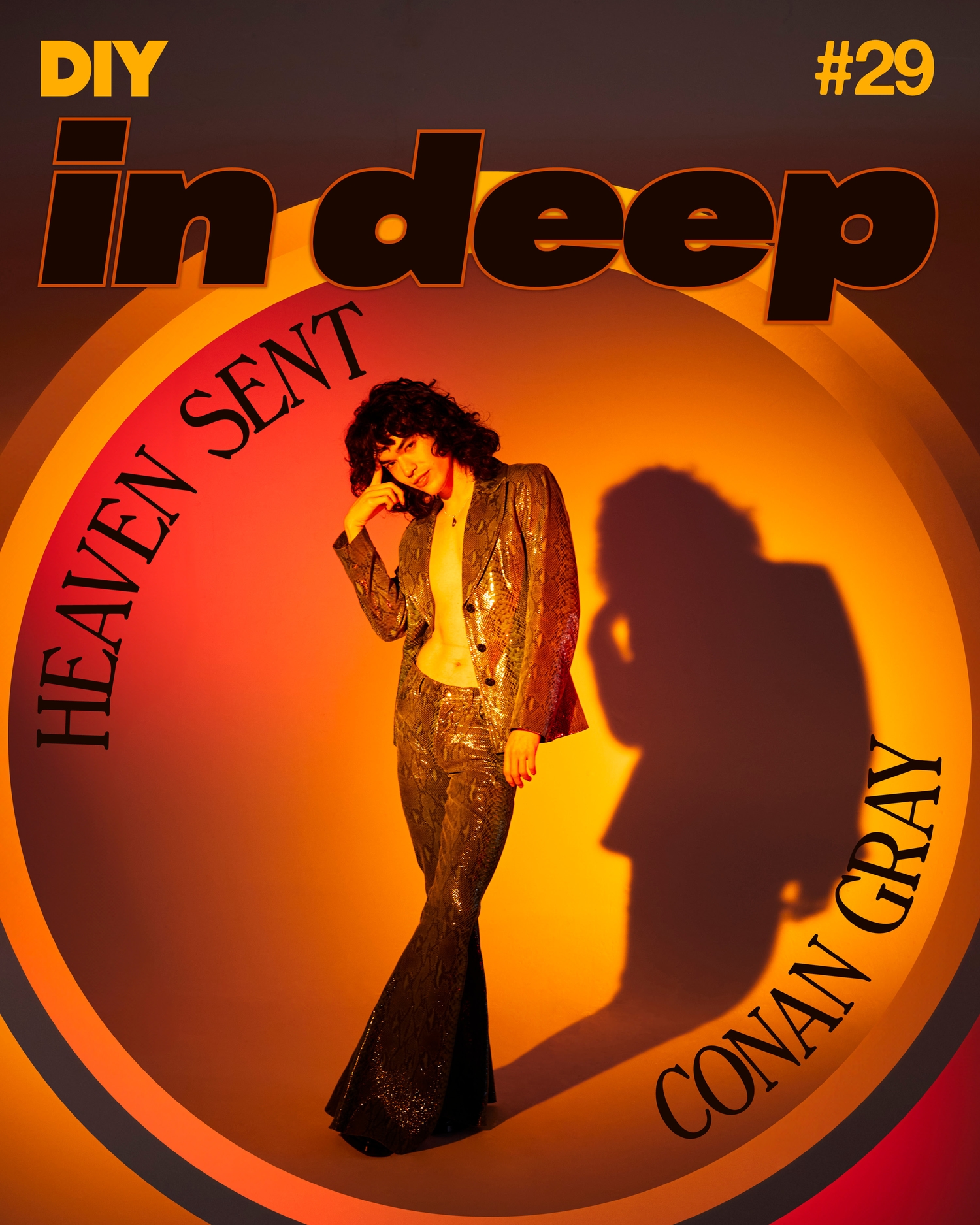
For Conan Gray, there’s nowhere better to be heartbroken than London. “The city is spread out, people don’t talk to you, it’s pretty lonely,” he shares. “You can just walk around, drink coffee and be miserable.” It’s this melancholy that makes the capital one of Gray’s favourite cities. For the Japanese-American singer-songwriter, known for brutally honest hits such as ‘Heather’ and ‘Maniac’, being able to luxuriate in the moodiness of a place is something he craves. “Oh, I love it,” he smiles. “I’m a sulker. I sulk.”
Feeling deeply and specifically has always been Gray’s starting point, with his emotionally resonant, heart-on-sleeve songwriting cementing his place as one of his generation’s most beloved voices. From his first EP ‘Sunset Season’ in 2018, Gray introduced himself to the world as a precocious, observational songwriter, capturing adolescent anxiety and suburban isolation within the moody haze of bedroom pop. His sophomore album, 2022’s ‘Superache’, was a powerful monument to yearning; a project steeped in a great, beautiful sense of longing. On ‘People Watching’, he sang of wanting love from afar, of romance as an experience he desperately coveted but still hadn’t attained for himself: “I wanna feel all that love and emotion / Be that attached to the person I’m holding / Someday I’ll be falling without caution / But for now I’m only people watching.”
Today, he’s preparing for the release of his third album, ‘Found Heaven’. Completely unlike any of his past projects, it’s an immersive ode to ‘80s synth pop and new wave; a bombastic and neon-drenched glam fest that sees Gray push himself sonically, vocally and artistically to unprecedented new heights. Songs like ‘Eye of the Night’ and ‘Fainted Love’ call to mind the rolling riffs and arena rock grandeur of Bon Jovi, whilst ‘Bourgeoisieses’ and ‘Boys & Girls’ play in the quirky robotisms of Soft Cell’s ‘Tainted Love’. There’s a genuine depth to Gray’s embodiment of the ‘80s on this project, which pulsates with metallic vibrancy and technicolour maximalism.
It’s a huge departure from his confessional indie pop origins. “To me, there were two ways to go about this third album,” he explains. “I could do exactly what’s expected of me. I’m not dumb - I know people want me to write sad little guitar songs. And I love those! Making that kind of music is so natural to me. But I knew I had to try something different that challenged me to be brave, and that’s why this album sounds so different. I do want people to know that this shift is an intentional one.”
Being brave became a call to action to Gray, who began wearing a signature star necklace every day that he worked on the album as a reminder of that mission. It became the attitude - a philosophy of sorts - behind the idea of ‘Found Heaven’. “You have to follow the things in life that are going to make you the happiest, rather than what will avoid letting people down,” Gray says. “We have to find our own personal idea of heaven, rather than spend our lives trying to figure out how to get to someone else’s.
“It’s also kind of about religion, in an allegorical sense,” he continues. “It’s the realisation that you have to live by your own rules rather than someone else’s, otherwise you’ll waste your whole life. To me, that’s much scarier than dying.”
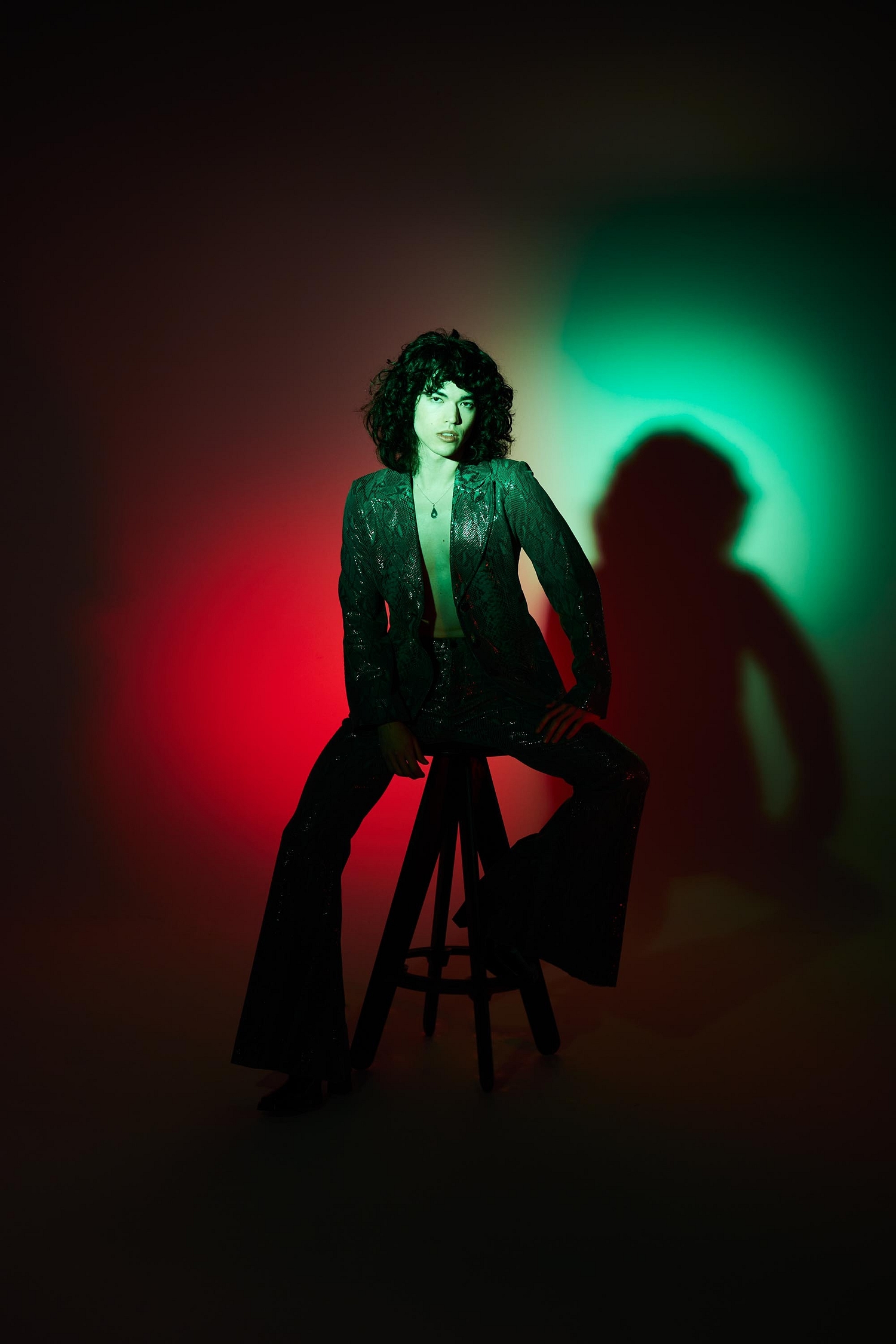
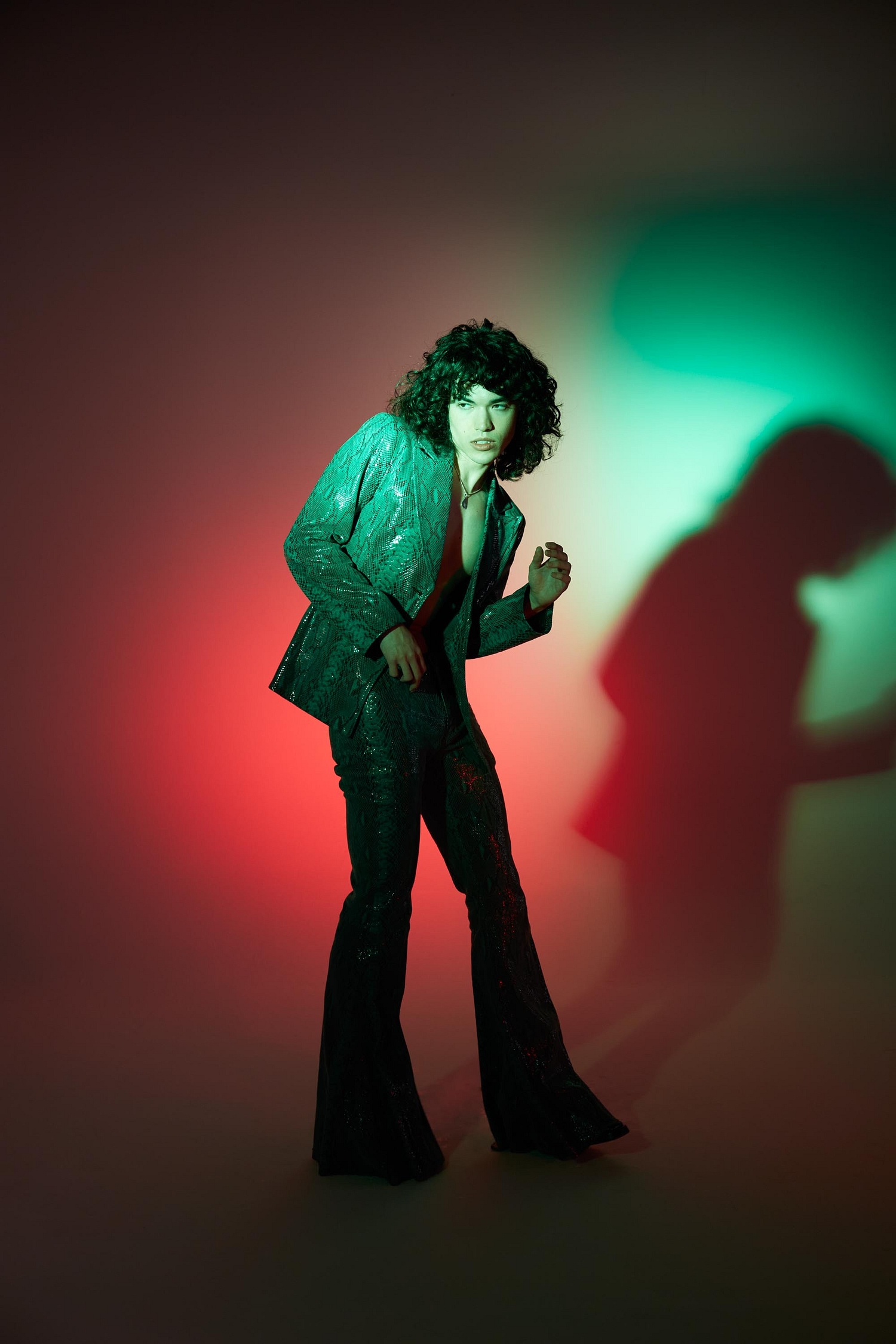
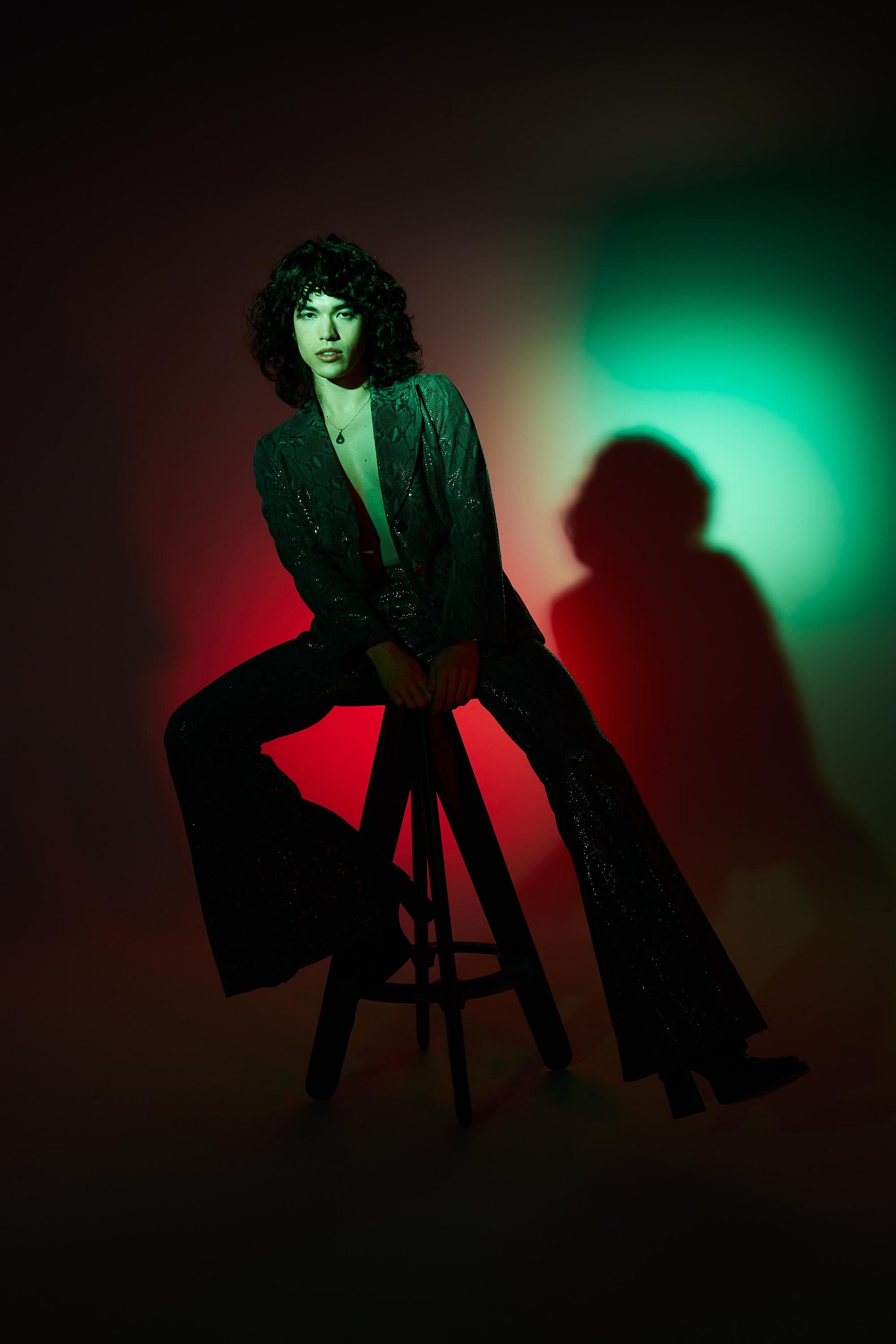
‘Found Heaven’ is therefore “a culmination of me discovering all of the best music ever made, [all] within the last few years,” Gray says. “It’s been so cool getting to discover all this cream-of-the-crop music in my adulthood, when I can really appreciate it. I get to approach these legendary artists almost like they’re new to me.” The heartache-fuelled ‘Alley Rose’, for example, was written whilst “thinking about Elton [John]”. A track penned as Gray forlornly wandered the streets of London, it finds him pouring that pain into careening, wailing vocals and melodies pounded into the piano, evoking the weighty catharsis of Elton’s most powerful ballads.
Gray fell in love for the first time last year, going from singing about love as an artistic subject from the outside looking in to finally owning that experience for himself. “I’m super developed in certain ways, but also deeply underdeveloped in others,” he shares candidly. “Like, the fact that I’d never dated anyone until last year made me feel very different to other people.”
When that relationship ended, Gray found his world rocked. “I’d never felt that way in my life,” he recalls. “Now, the album sounds like a time capsule to me. Of how weird I felt when I was falling in love for the first time, and then how fucking weird I felt when everything fell apart.” That formative heartbreak became, partly, the driver behind his full-bodied indulgence in the music of a bygone era. “I felt so scared to exist in reality while I was going through all that,” he reflects. “I became obsessed with listening to old music. I don’t think I listened to anything that was made in 2023.
“I kind of took that principle of being brave and ‘finding heaven’ and carried it on in my own life,” Gray adds. “Falling in love is a very scary thing. I’m someone who will very much cut off all emotions for the sake of self-protection. But in my more recent years, I’ve learned that that’s just such a fucking waste of life. You’ve got to let your heart get broken; you’ve got to be vulnerable. It’s the only way you can grow as a person. And so I definitely spent a good amount of last year in London, walking through the fog, headphones on, listening to Wolf Alice ‘Don’t Delete the Kisses’,” he indulges, gamely. “Just walking around, drinking my coffee, being so sad. It was perfect.”
Nigro - Olivia Rodrigo’s sole collaborator on both ‘SOUR’ and ‘GUTS’ - is also the person responsible for introducing Gray to the singer: his best friend for a number of years now. “We’re really good at maintaining our friendship, regardless of where we are,” he says. “Not to toot our own horn but we recognise that a friendship is a relationship of its own, and you have to put work into it.” Despite that, “Liv and I have been joking that we’ll never see each other again,” he chuckles. With conflicting schedules, he had to miss the opening night of Rodrigo’s current world tour in Palm Springs. “It’s alright for now,” he says. “We still talk to each other all day long.”
Gray’s friends are as, if not more, important as his family. “I have the same friends from literally sixth grade or earlier,” he says. “They’re the first people to tell me if I’m being an asshole or complaining about something that’s not a real problem. We care about each other a lot and are very involved in each others’ lives. I don’t think I’d actually be alive today if not for my friends.”
Community has been a vital anchoring force throughout his life, especially following the early years he spent moving around in a troubled military family. He explores this subject on ‘Winner’, a great, thumping piano ballad and a tragic indictment of Gray’s father and childhood: “Packed my bags at fourteen / I hadn't planned on leaving / But you haven't been back home for days / The pots and pans and roaches / They're glad I'm finally going / Cause even them, they shudder at your name”. Whilst he doesn’t name things on the track, Gray has spoken publicly about his precarious childhood, and sang of his father’s violence previously.
“For so many years, I ran from my childhood,” he shares. “I worked and worked and did everything I could to avoid it. But somewhere in the pandemic, it came back. I finally thought about it and realised, ‘Fuck, that was really bad, wasn’t it? It’s changed me forever.’”
“To a lot of people, ‘healing’ means getting over it,” he continues. “But I’ve not found that to be true. My healing has involved looking at something bad that happened to me, and actually facing up to it and accepting what it did to me. Understanding that even though I’ll never really get over it, I still have the ability to keep going with my life.”
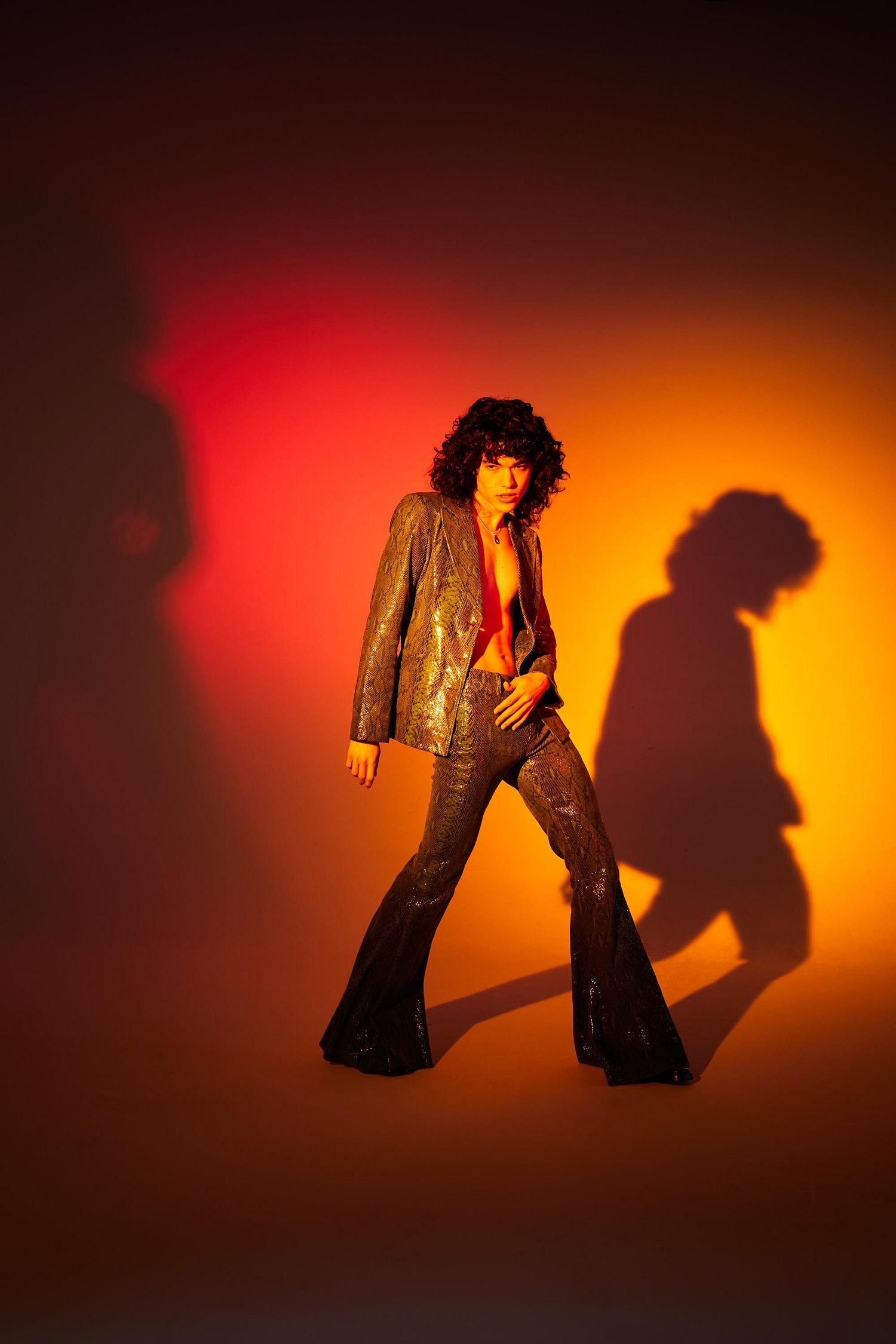
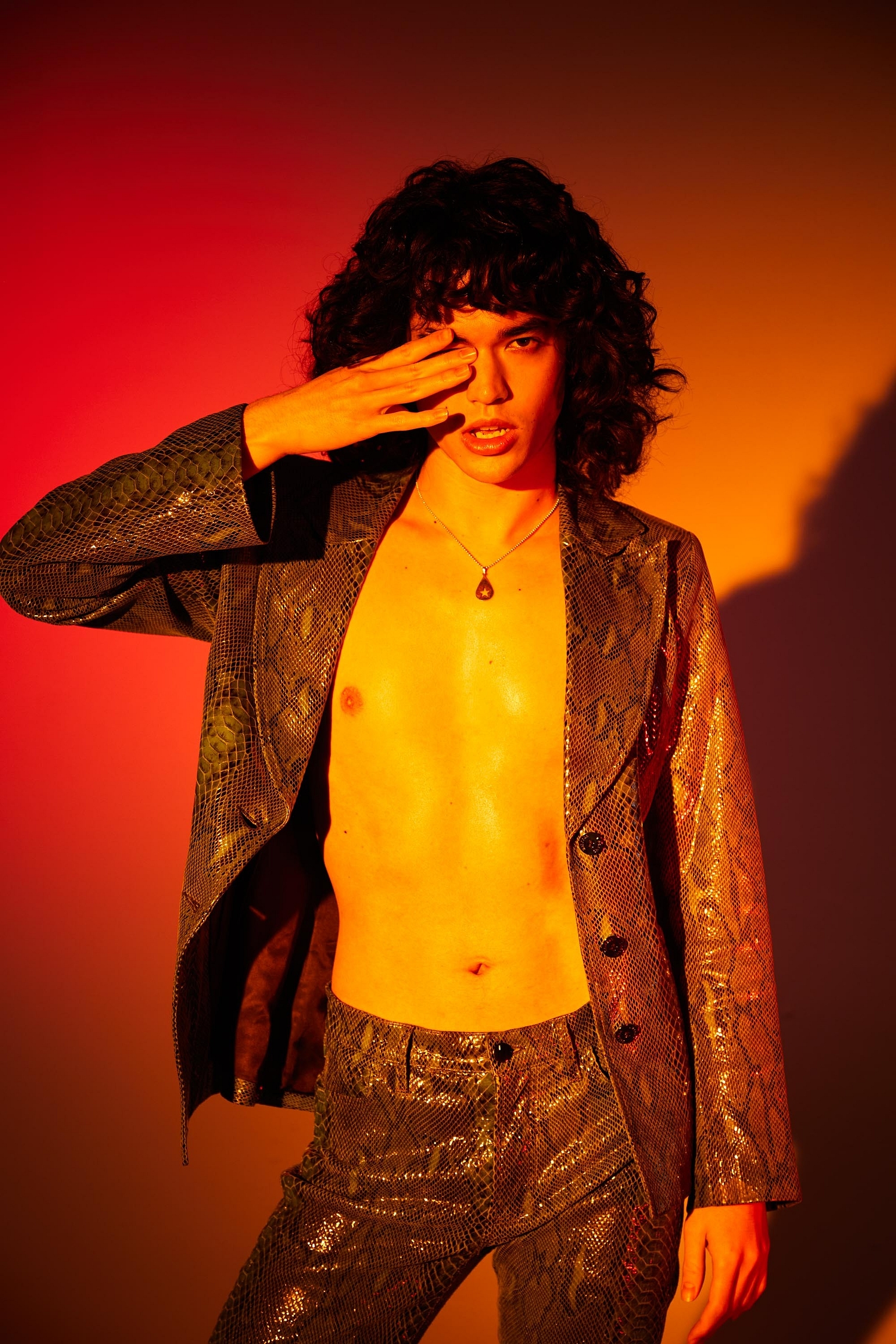
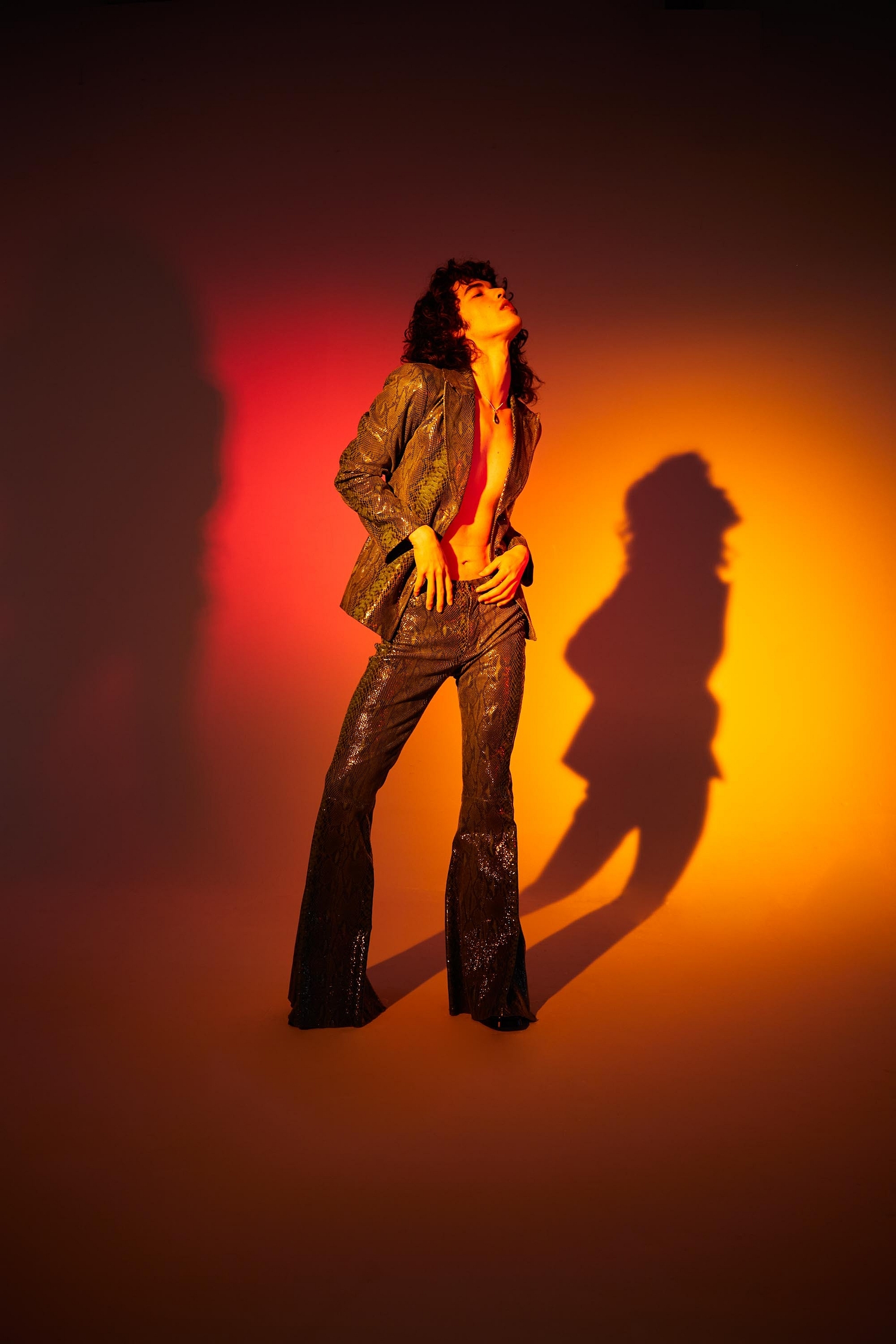
Today, Gray’s YouTube channel is a rare, perfectly-preserved archive of his journey to pop stardom, beginning with his first cherubic video posted 11 years ago (aptly titled ‘Let Me Introduce Myself’) and followed three years later by a video titled ‘GETTING A RECORD DEAL’. Within a few years, his thumbnails evolved from lowercase homemade vlogs to professional music videos dotted with the VEVO logo.
“I never thought I would actually become a singer out of that,” he continues. “I’m from a completely normal town and family, so I didn’t think it was realistic. Well, actually a very weird family,” he caveats, “but I’m definitely not a nepo baby!” In spite of his dizzying rise, Gray is rigorous about remaining grounded in who he is. “It’s essential to me that I act like a human being and actually live a life that’s real,” he nods. “Maybe if I didn’t write my own songs I wouldn’t care as much. But I do, and I need to be living a life that’s actually relatable.”
A current priority for Gray is finding friends to get coffee with. “I have like, four closest friends who are basically family to me. But not very many acquaintances. I’m trying to change that.” That seems an oddly specific goal? “I just feel like I need to be better at being a fucking member of society,” he laughs. “I’m so bad at, like, having a friend that you just get a coffee with and don’t want to marry.”
Despite the dynamics of the industry and the noise of the internet, however, Gray finds it surprisingly easy to stay cool-headed. He’s preparing to drop his most technicolour, popstar-y album to date but, behind the scenes, he’s putting as much work into staying resolutely human.
“At the end of the day, this is music and it’s literally about feelings. If you like the music you’re making and it’s moving people, then you’ve won,” he says. “ But I’m just very grateful. Happy to be here, happy to have a roof over my head. I’m not trying to be like, ‘Where are my yellow M&Ms?’ Sure, there’s some days when I feel overwhelmed and haven’t seen my friends in months, but at the end of the day, this is a huge honour. So I have to shut the fuck up.”
‘Found Heaven’ is out now via Island Records.
